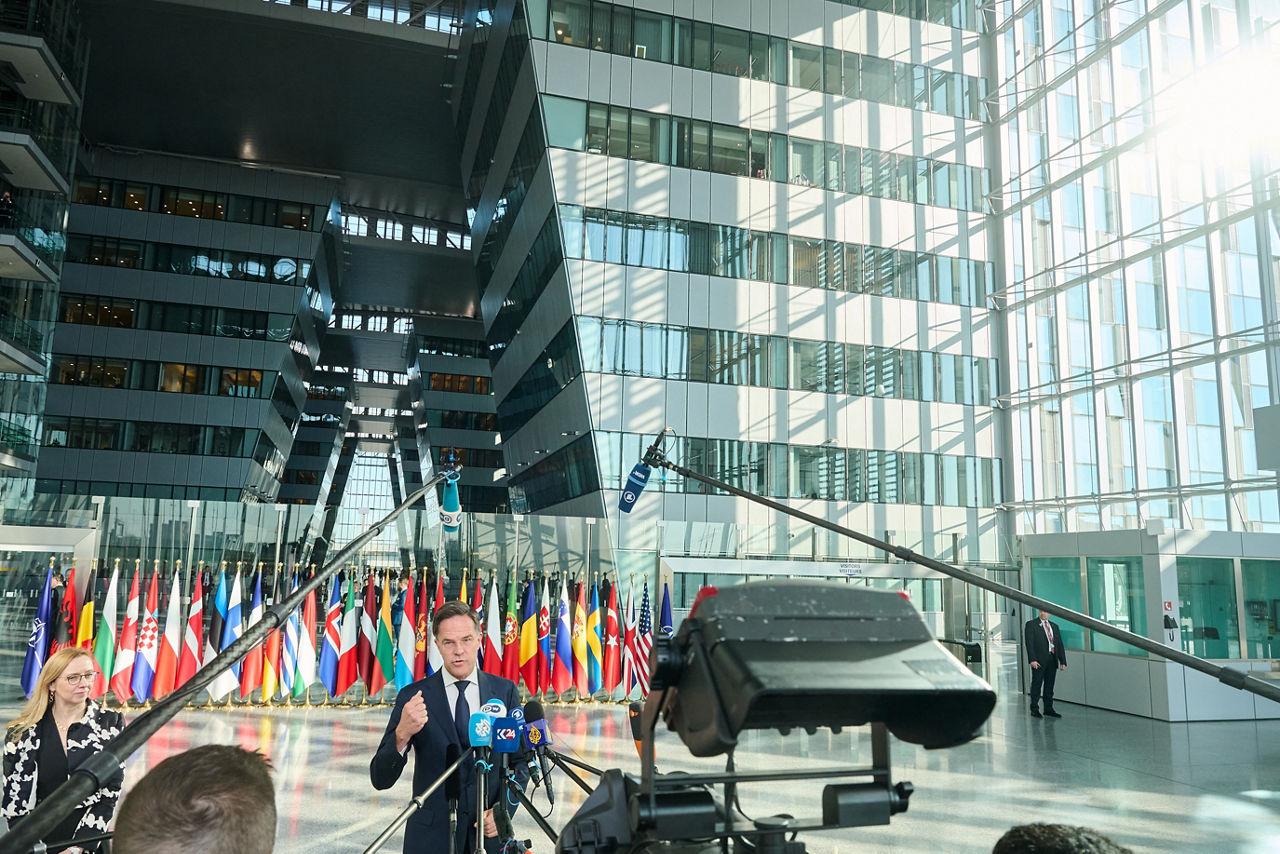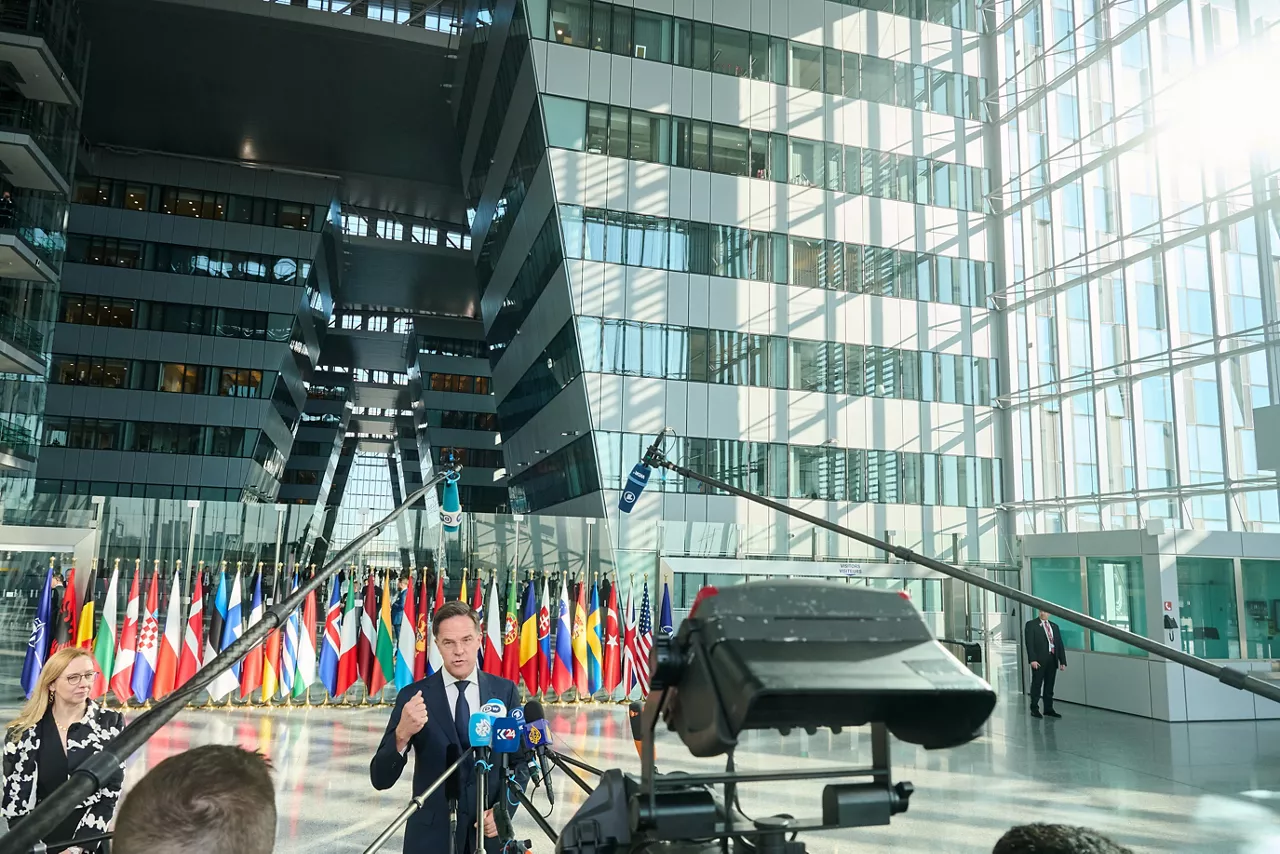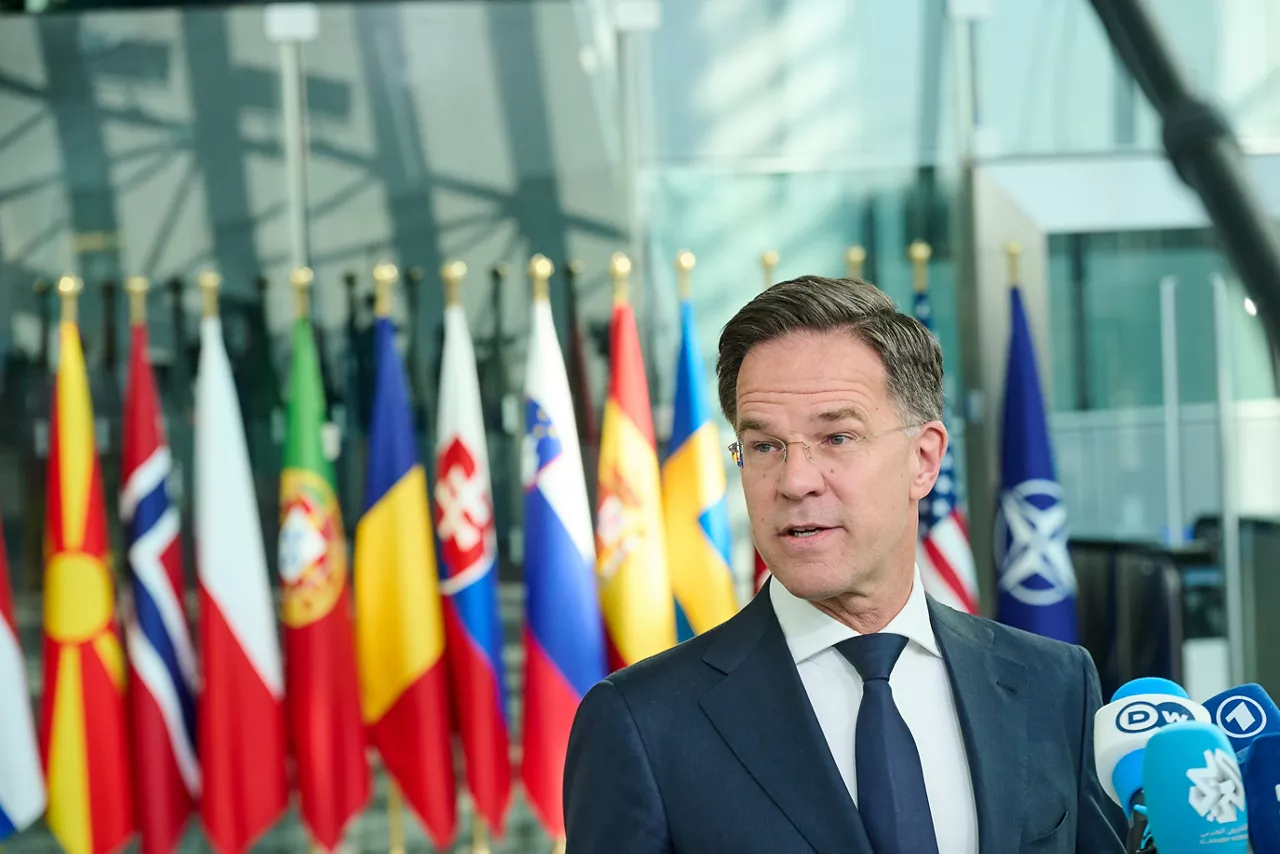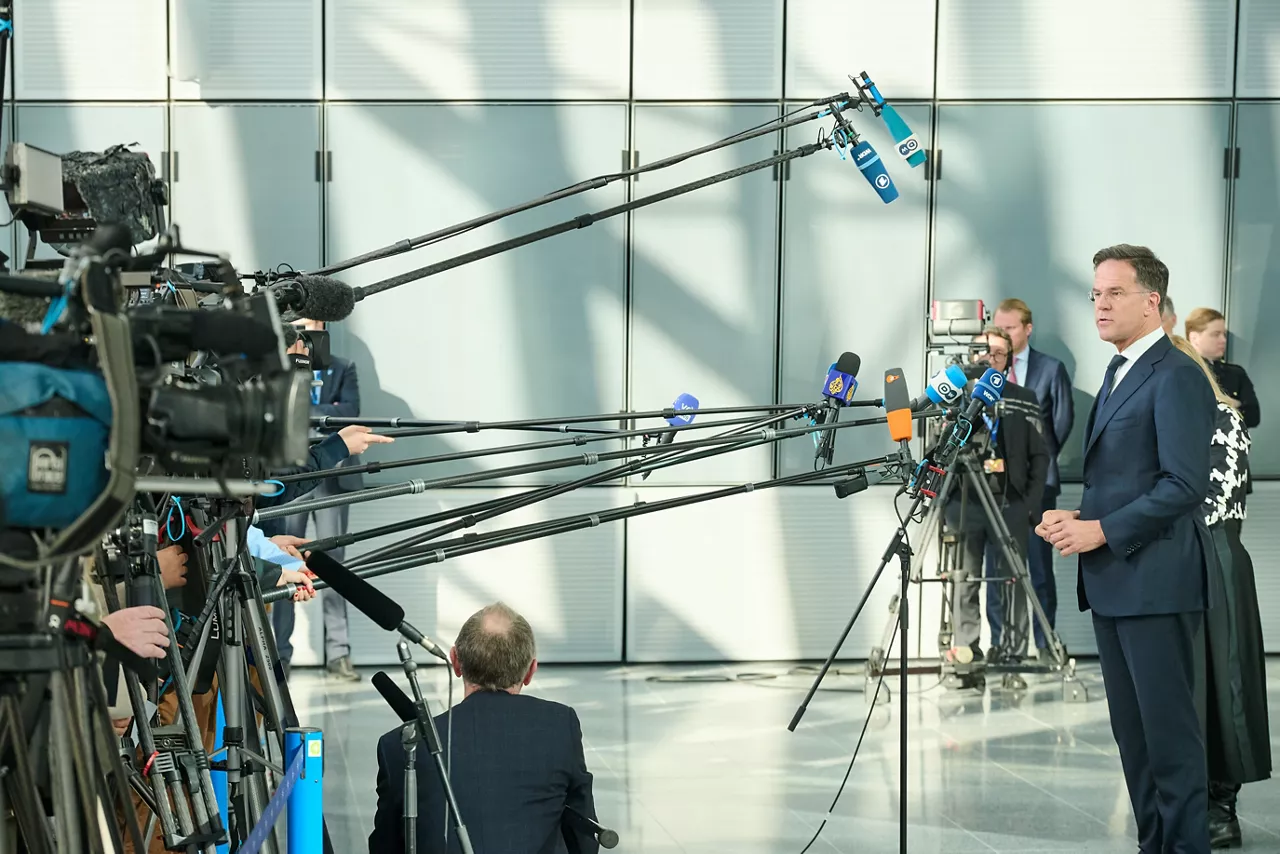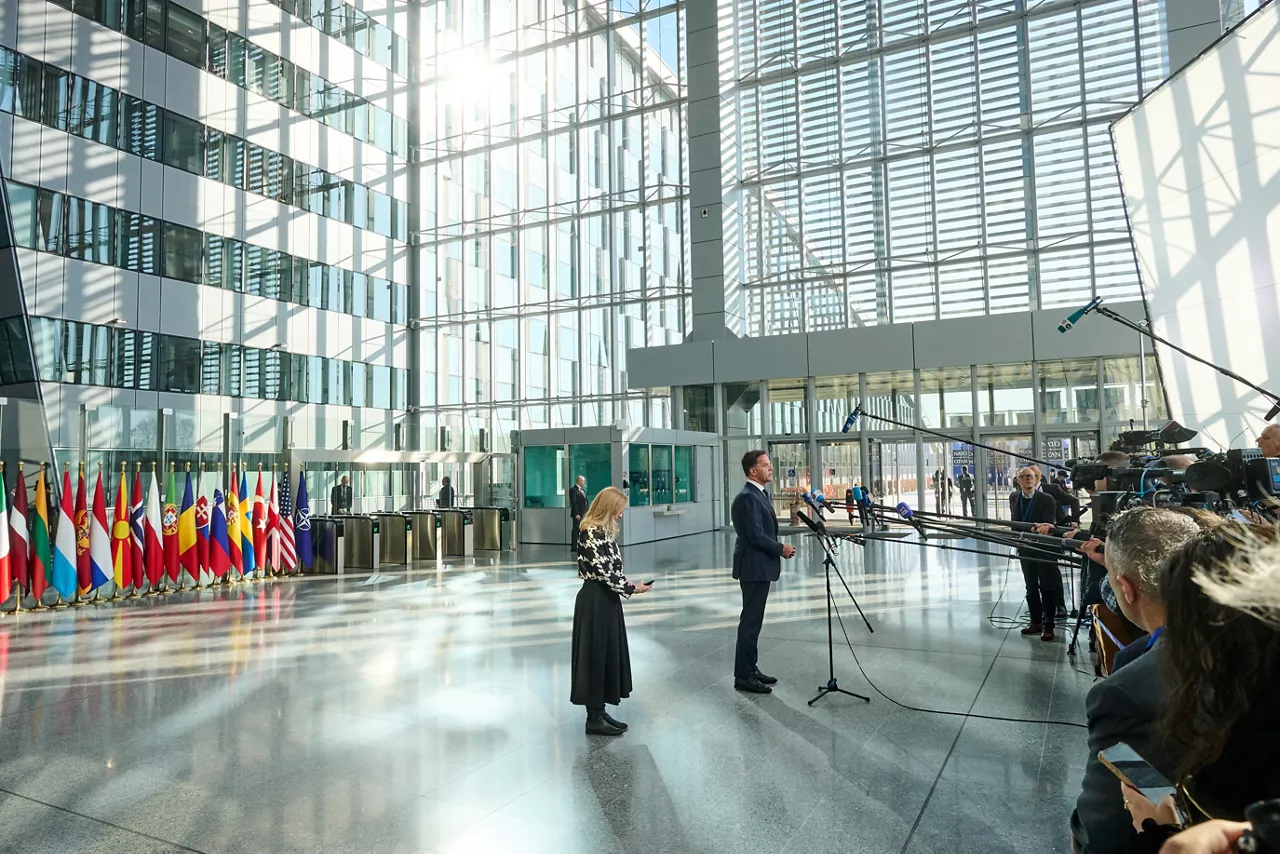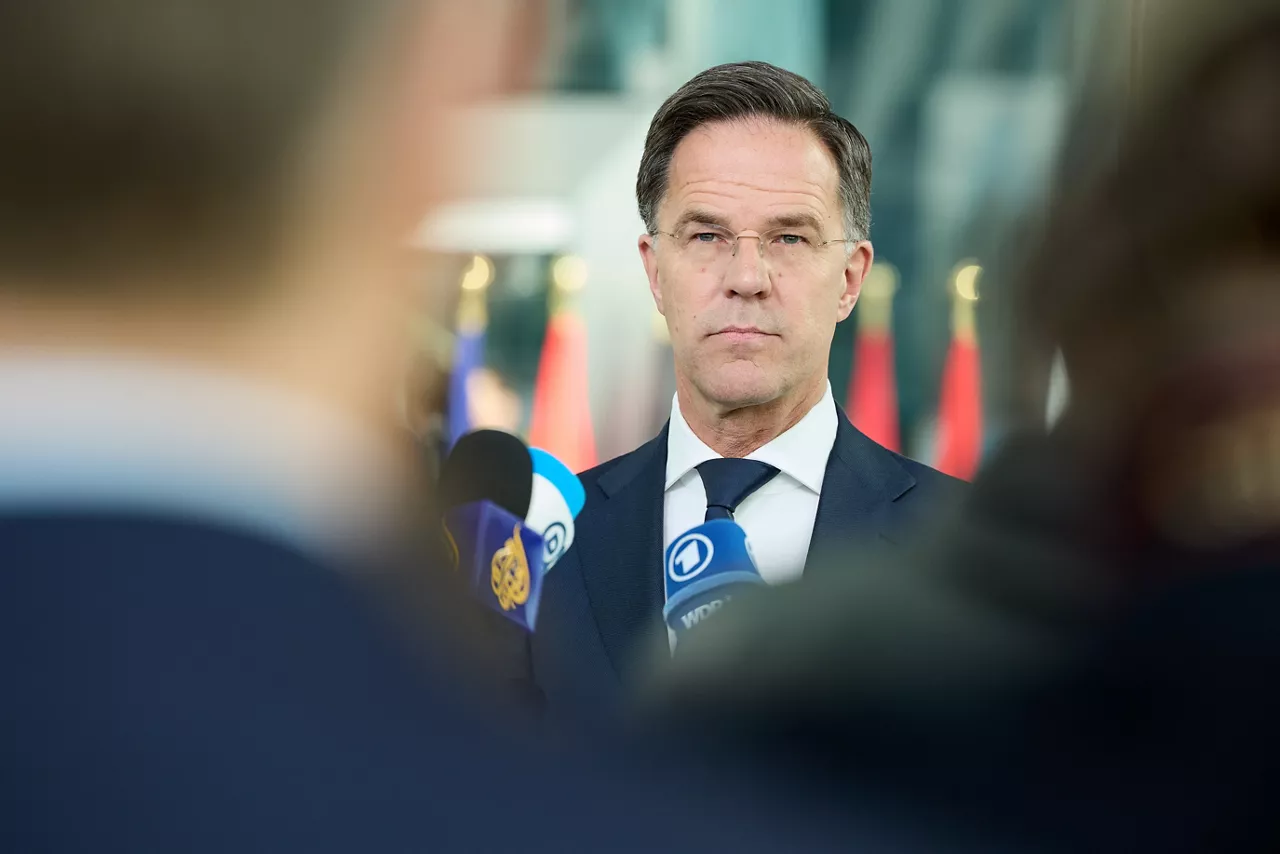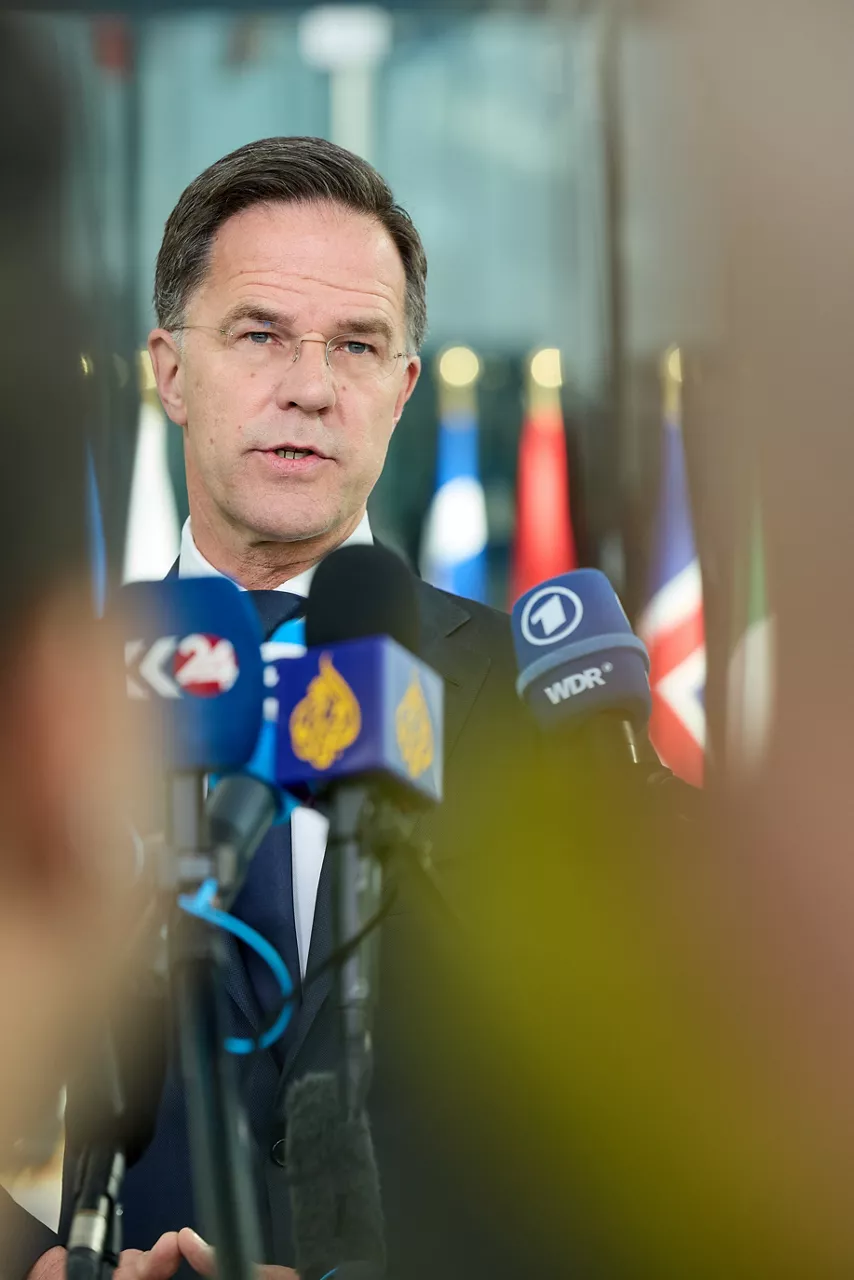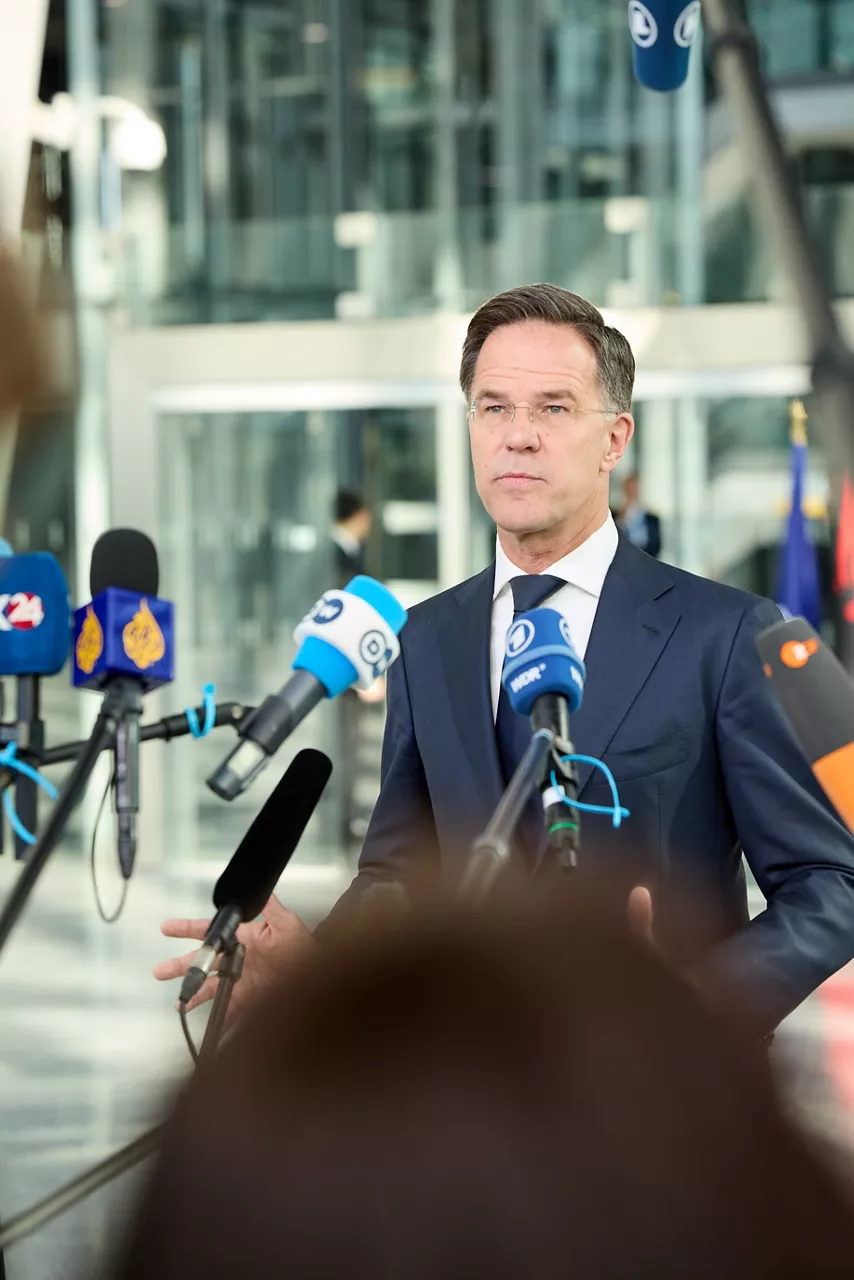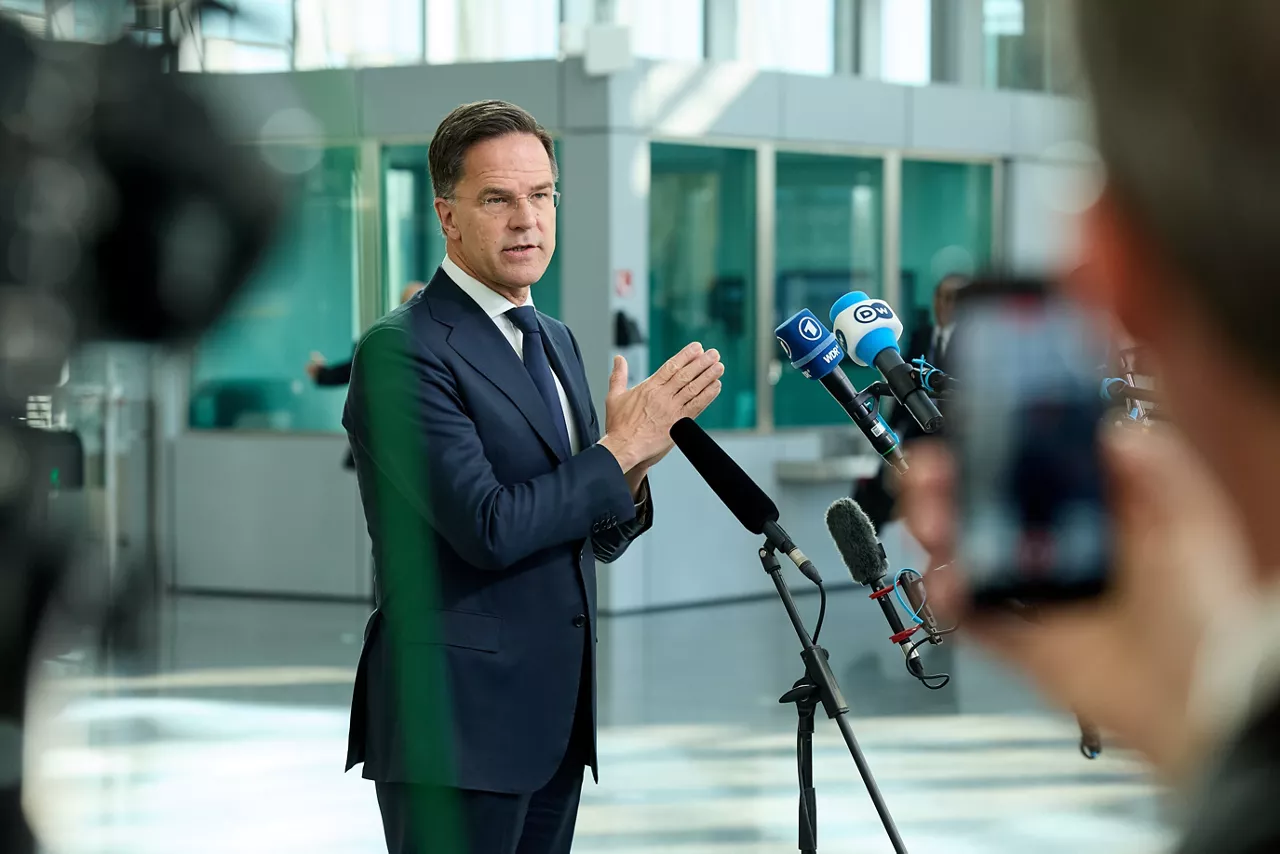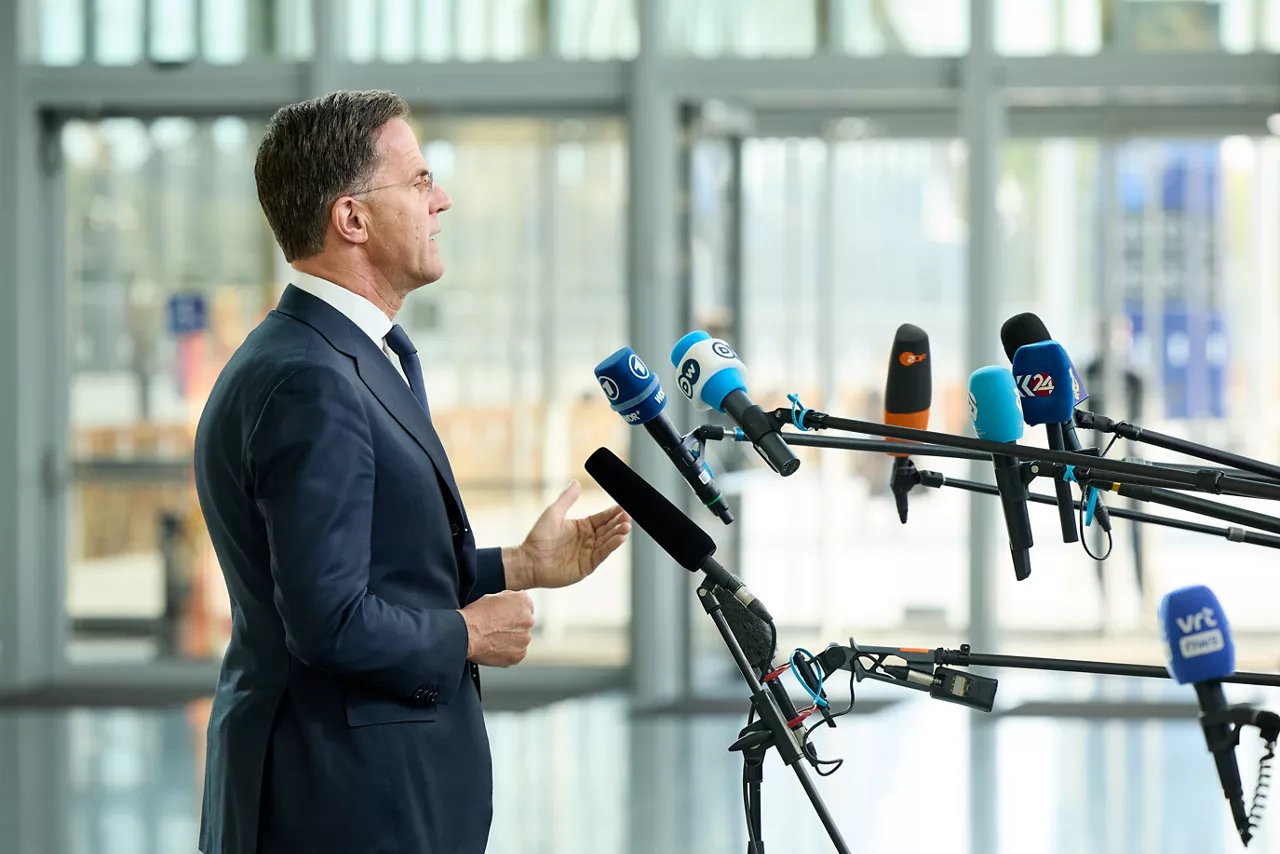Download NATO’s broadcast-quality video content free of charge

Log in
NATO MULTIMEDIA ACCOUNT
Access NATO’s broadcast-quality video content free of charge

Check your inbox and enter verification code
You have successfully created your account
From now on you can download videos from our website
Subscribe to our newsletter
If you would also like to subscribe to the newsletter and receive our latest updates, click on the button below.
Enter the email address you registered with and we will send you a code to reset your password.
Didn't receive a code? Send new Code
The password must be at least 12 characters long, no spaces, include upper/lowercase letters, numbers and symbols.
Your password has been updated
Click the button to return to the page you were on and log in with your new password.
(As delivered)
Good morning. We’re looking very much forward. Good morning to all of you. We're looking very much forward to this Foreign Ministers meeting.
It will be the first for Marco Rubio to attend. So we will welcome him, and we will discuss, of course, a lot of things, but particularly, of course, focusing on ramping up defence spending. And here, great things are happening. Over the last couple of months, we literally see hundreds of billions of euros / dollars rolling in.
Look at what the Germans have announced, Europeans have announced, many other countries have announced. So this is probably the biggest increase in defence spending here on the European side of NATO since the end of the Cold War. But we still need more. So that will be discussed.
And then, of course, defence industrial production that will be important. We have many guests participating over the next two days, including our partners from the Indo Pacific. With them - Japan, Korea, Australia, New Zealand - we will discuss how to deepen that relationship, very much, focusing on another big subject these two days, which is the defence industrial production. How to get the production up. And here we can do more, I strongly believe, with our partners of the IP4, the Indo Pacific Four, so with the Japanese, the Koreans, the Australians and the people from New Zealand.
Of course, we also have the Ukrainian Foreign Minister here. We have Kaja Kallas here, the European High Representative. So we have a whole bunch of people, good talks to attend to. And I think all of these discussions, there will be a common thread, which is Ukraine, how to keep Ukraine in the fight, how to make sure that we keep on delivering what is necessary for Ukraine to sustain in the fight, including the military aid to Ukraine.
So really, a packed program of two days, looking forward to it. And of course, we will meet each other at the end tomorrow for the closing presser.
But maybe you have some questions now, I am open to answer them.
Mark Rutte, NATO Secretary General – Sir?
Reporter – When are we going to open the Jordanian, the office in Jordan?
Mark Rutte, NATO Secretary General – It will be soon, but I don't have a date now.
Reporter – To what extent do you think NATO should trigger Article Five, if Russia does a hybrid attack on a NATO Ally?
Mark Rutte, NATO Secretary General – Well, this is not on the agenda for these two days.
Reporter - Leaked from a Signal chat of the US administration and in there some disrespectful comments about European Allies. Why are the United States still a trustworthy Ally?
Mark Rutte, NATO Secretary General – Absolutely they are. You've seen what President Trump himself said about Article Five, about NATO, his full commitment. We know that they have an expectation. Expectation is for the Europeans and the Canadians to spend more, and that is happening as we talk. I mean, as I said, this is probably the biggest increase in defence spending since the Berlin Wall came down in 1989 but still, we need to do more. So this will be on the agenda today. So there is a clear commitment by the US, a clear expectation that we will equalize the spending here on the European side of NATO with what they are doing because of the Russian threat, because of the build-up in China. Look what they are doing with their nuclear, with the nuclear arms and, of course, Iran and North Korea.
Reporter - [inaudible] …After the President’s announcement on tariffs last night.
Mark Rutte, NATO Secretary General – I think the reception will be very positive. This is not a meeting about, of course, the economic issues and subjects. It will be, we are really focused. The focus here, of all 32 is how to defend NATO territory, against the Russians, our long-term threat, which will be there even after, I hope, there will be a deal on Ukraine. The Russian threat will be there for many years to come. We are seeing what China is doing. We seeing how these two theatres, the Indo-Pacific and the Euro-Atlantic, are getting more and more connected by the fact that the Russians are working together with the North Koreans, with the Chinese, with the mullahs in Iran. So we have to look at all these theatres in conjunction, and that will be our focus.
Reporter - European Allies believe that…
Mark Rutte, NATO Secretary General – Again, could you start again?
Reporter - European Allies believe that the United States is going to draw down here in terms of troops, in terms of equipment, to address its security priorities elsewhere. They want to know how much, they want to know how fast. How important is it to get a clear message today from Marco Rubio on that and on the threat that Russia poses to this Alliance, because there have been unclear, or perhaps no messages at all coming from the White House.
Mark Rutte, NATO Secretary General – But this is not new. For many years, the Americans have told us, and they started 50 years ago, that they want to pivot more towards Asia. That there are issues in the Indo-Pacific the Americans have to attend to that's one. Second they have, for many years, told the Europeans, you have to spend more. And this really started to happen after Trump came into office in 2016, 2017 by now, we are spending more on this side of the Atlantic, 700 billion in aggregate, since he came in, in 2016, 2017. So these issues are not new. There are no plans for them to all of a sudden draw down their presence here in Europe, as I said yesterday. But we know that for America being the superpower they are, they have to attend to more theatres than one. It's only logical that you have that debate, and we are having that debate for many years.
Reporter – Is it not important for the Allies or also for your defence plans within NATO to know to what extent and in which ways US may be reducing their role in Europe?
Mark Rutte, NATO Secretary General – We do everything in the Alliance in, in the spirit of no surprises, of working together, of being strong Allies, of being laser focused on the main threat - which is Russia and the upcoming issues around China and North Korea, Iran, that's what we're working on. And that means that when, which is over years the case, the Americans want to pivot more towards Asia, that obviously we will do that in a very coordinated manner.
Reporter – Ceasefire in Ukraine, do you think will be happening, or just talk?
Mark Rutte, NATO Secretary General – Well again, the good news is that President Trump broke the deadlock on Ukraine, has started a dialogue with the Ukrainians and the Russians - we fully support this. I personally gave my commitment - whatever we can do, we will help. And the Americans have been absolutely clear that a deal, be it a ceasefire deal or a full deal on Ukraine, has to be lasting, has to be enduring, and that you have to make sure that Putin will never, ever try again to capture one square kilometre or one square mile of Ukraine in the future.
Reporter - This partial ceasefire. Does it work? Or it's partially work from your perspective?
Mark Rutte, NATO Secretary General – Let me be clear, the Americans have broken a deadlock. They are working with the Russians and Ukrainians to get to a peace deal, and probably intermediate to a ceasefire. This is what the Americans are working for, day and night. And I think it is very positive that since Trump came in, the second time, President Trump in January that he has been working on this with his team. I do not want to comment on every intermediate step other than that I very much welcome what he is doing, that we want to support those efforts, that we agree with his red lines, that there should be an enduring and lasting peace for Ukraine.
Reporter - Rubio came to Brussels this morning with a 5% threshold. How would that be possible in the real world, and will there be negotiations?
Mark Rutte, NATO Secretary General – Well, as you know, in NATO, including the US part, Canadians, the European members of Allies in NATO, we are working on a process which will define the gaps we have to get to the targets. This is the defence, the NATO Defence Planning Process, and we will come to conclusions in May, June, and hopefully before the Summit in the Hague. From there, we will assess, given those gaps, given the targets, and given the gaps, what we need to do more of and as I said before, it's my assumption that what we need to spend - the Canadians and the Europeans - to get there will be north of 3%.
When you look at the emerging outcomes of this whole process and of course, that is a content-driven process that based on those targets, based on the gaps emerging from that, we will have a clear discussion on what we need to spend more on. But in the meantime, and I think this is a great news that the last couple of months, we see this again, biggest increase in defence spending since the end of the Cold War in the European part of NATO, and that is extremely positive. And necessary, because we have to defend ourselves against the long-term threats the Russians pose.
Reporter – Any discussion about Western Balkans? Will there be any discussion?
Mark Rutte, NATO Secretary General – It's not on the agenda explicitly, but I think it might be raised by Allies. And of course, it's one of the issues we’re very much focusing on generally. So as you know, I've been to Sarajevo and to Pristina recently. I had discussions on the phone and here in Brussels with the President of Serbia. So we’re really very much involved as NATO to make sure the Western Balkans stay stable, stay safe, together with our five Allies, Montenegro, North Macedonia, Slovenia, Croatia and Albania. So collectively, we navigate the Western Balkans, making sure that stability is there to stay. I think we have to go to the last two questions. Sir?
Reporter - Why is Greenland not on the agenda today, having one Allied country feeling pressure from another that threatens to take its territory?
Mark Rutte, NATO Secretary General – I would not be surprised if the Arctic would be raised today by Allies. And this is an issue. And the Arctic, of course, is not only Denmark, the Kingdom of Denmark, which, of course, has Greenland as part of its kingdom. This is also Iceland. It's Canada, it's US. It is Norway, Finland, Sweden. So we have seven Allies which are present in the Arctic. We know that the Chinese are opening sea lanes. We know that the Russians are re-arming there. We know. And as I said yesterday, it seems to be a detail, but it is an important detail. It's not trivial, and that is the issue of icebreakers. So more and more the seven Arctic countries are working together to make sure we keep that part of the world safe. And NATO is more and more involved. So, the final question, yes, ma'am?
Reporter - Do we have a common definition on the what is included in defence spending, and should that be discussed again?
Mark Rutte, NATO Secretary General – No, I don't think so. We have a clear definition on what defence spending is. What we do not want is to is to water that down so the 2% or whatever the new target will be, NATO is very clear with the Allies. And I know this from my previous role, you try sometimes to negotiate. Hey, should this not be seen as defence spending? And I know that the guys and the women working here are very harsh with Allies to tell them, this is, this should be part of this. This should not be part of it. So we are very clear on that. Thank you so much. And I look forward to see you tomorrow at the end of all the meetings. Take care.

